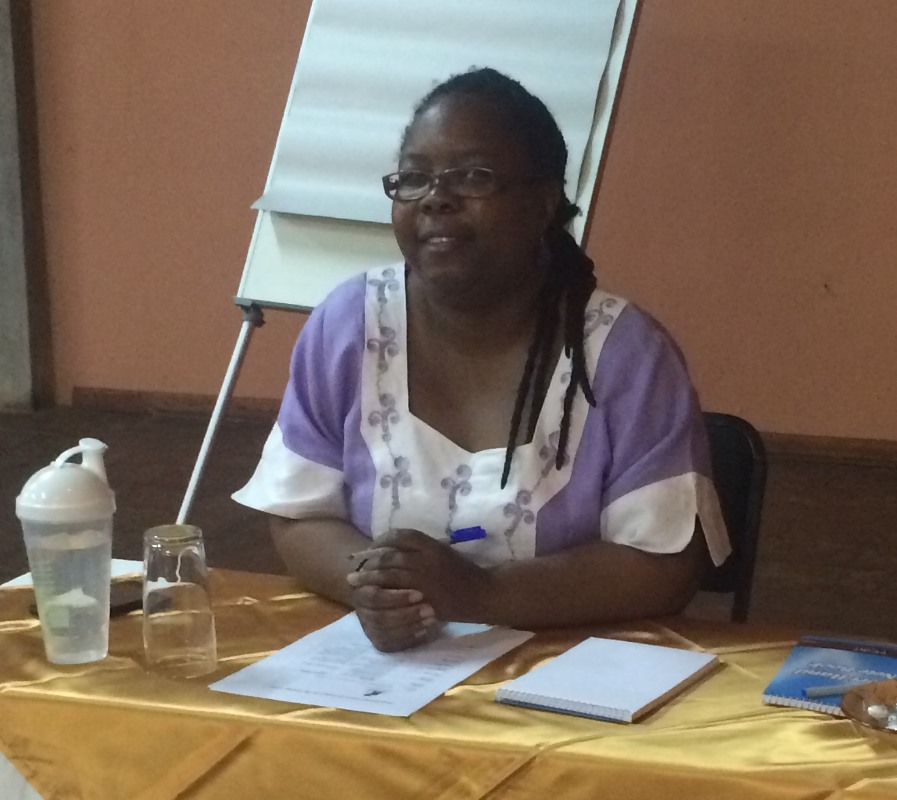On the 8th of March 2021 on the commemoration of International Women’s Day held under the theme #ChooseToChallenge, the Zimbabwe Gender Commission (ZGC) urged women to challenge biases and misconceptions so as to create a more inclusive and gender-equal world.
The Zimbabwe Gender Commission is one of the five Independent Commissions created in terms of Section 232 of the Constitution to support and entrench human rights and democracy in Zimbabwe. Precisely, ZGC is established in terms of Sections 245-247 of the Constitution and operationalised through the Zimbabwe Gender Commission Act [Chapter 10:31]. The mandate of the Commission revolves around monitoring, protecting, promoting, and advancing gender equality as provided for in the Constitution.
“The 8th of March 2021, marks this year’s commemorations of the International Women’s Day (IWD) whose theme is #ChooseToChallenge and highlights the importance of challenging biases and misconceptions in the interest of creating a more inclusive and gender-equal world.
“The Commission thus joins the world in celebrating various milestone achievements registered by women’s movements towards creating a more inclusive society as women and girls continue to demand their rights against a backdrop of inequality, discrimination, and harassment. Key demands are for socio-economic, civil, and political rights. Globally, systemic barriers to women and girls’ participation and representation in leadership and decision-making positions persist,” the ZGC said in a statement.
The 2021 IWD commemorations are running under the national theme, “Women in leadership: Achieving an equal future in a COVID-19 world.” The theme focused this year’s commemorations on the representation of women in leadership and decision-making positions across their diversity. Statistics show that women and girls continue to be denied opportunities to take up leadership positions in socio-cultural, economic, and political spaces despite constitutional guarantees.
The global and national themes are a clarion call for societies to transform legislative and other commitments towards a future free of all forms of gender inequality, injustice, and discrimination in general and in leadership and decision-making positions in particular.
The ZGC said this is also a time for institutions to introspect and consider meaningful ways of promoting women into leadership and decision-making positions.
“Guaranteeing the retention of gains also requires protecting the rights of those women in leadership, so this IWD provides an opportunity to interrogate the gender equality narrative vis a vis the lived reality among women and girls.
“The untenable position in which women are deliberately excluded in the development matrix of the country becomes even more disheartening when read against a Constitution that is abundantly clear on gender equality and non-discrimination. Sections 2, 3, 17, 51, 52, 56, and 80, among others, are unambiguously clear on the supremacy of the constitution, principle of gender equality, gender balance, dignity, personal security, gender equality, and non-discrimination, and women’s rights respectively.”
The commission noted that Zimbabwe is also party to regional, continental and international normative frameworks that expressly guarantee gender equality and women’s rights.
It reiterated the fact that the theme recognises that the obtaining COVID-19 environment is the new norm which requires to be treated not just as a medical phenomenon, but one that starkly amplifies existing inequalities in terms of representation in gender dimension in decision-making, access to information, social protection, and personal security in the face of gender-based violence, the responsiveness of the economy, education and health.
“As scarce resources are diverted to responding to the pandemic, it should be noted that unless this is gender-responsive, there is a greater possibility of doing harm to vulnerable and excluded groups.”
“The theme thus encourages all stakeholders to become conscious of the gender discourse as presented by COVID-19. It is certainly true that the global pandemic has affected people disproportionately in response to existing social and gender justice and power relations. It is a common cause that in any pandemic, the vulnerable groups of women and girls, the elderly, and persons with disabilities, among others, are more affected as they lack voice, choice, and control over their destiny.”
The Commission said it reserves the right to choose to challenge systemic barriers to gender equality and calls upon the government, in line with Section 2 of the Constitution, to outlaw any law, practice, custom, or conduct inconsistent with it. ‘The obligations imposed by the Constitution are binding on every person, natural or juristic, including the State and all executive, legislative and judicial institutions and agencies of government at every level, and must be fulfilled by them” declares the constitution.
It is in that context that the Commission, calls upon the Government to take advantage of existing opportunities to incrementally increase women’s representation across their diversity including at the highest levels.






